Hollywood Vampires bassist opens up on influences, uprights, and following your musical passion
Exclusive interview with FBPO’s Jon Liebman
May 17, 2021
Chris Wyse heard the call to rock and roll adventure at a young age. And its powerful roar has taken him to some mighty interesting places. The NYC native got his first taste of rock renown playing with The Cult around the turn of the millennium, eventually becoming their full-time bassist. Over the years, Wyse has performed and recorded with the likes of Ozzy Osbourne, Ace Frehley, Jerry Cantrell, and Scott Weiland, among others. He’s currently a member of the Hollywood Vampires and sings and plays bass with the alternative rock band Owl.
FBPO: Your biography includes the names of everyone from Ozzy Osbourne, Alice Cooper, and Mick Jagger to Paul Hindemith, François Rabbath, and Gary Karr. Where should we start?
CW: [Laughs] I guess my real humble beginnings were as a teenager in New York. We were lucky enough to have all these battle of the bands. I was originally obsessed with Steve Harris and playing in kind of hard rock/metal-style bands. The upright bass came in for college because I was still in upstate, and upright was the only thing you could really do in that region. So I humbled myself and picked up the upright bass and that’s where I discovered Gary Karr and François, and those guys. I have a big range of stuff I like. It’s all bass, all styles, all different kinds of players, but I have some leanings of course, like most people.
FBPO: Just a little for bassplayersonly.com factoid: I interviewed Gary Karr and François Rabbath on – would you believe it – the same day!
CW: Oh, wow! How cool is that?
FBPO: It was at a convention for the International Society of Bassists, somewhere in upstate New York.
CW: Wow. Really, really cool! It’s amazing how those guys are so on top of their craft as they get older, so in tune with it, and pushing themselves. I think it’s amazing.
FBPO: When Gary gave his presentation to the audience, I was surprised to hear names like Jaco Pastorius, Victor Wooten, and Michael Manring coming out of his mouth. He’s a real music fan.
CW: Yeah, he’s got an ear for the bass guitar. That’s really cool.
FBPO: What college did you go to Chris?
CW: I just went to an upstate college, Schenectady, for my two years and got my music degree. Studied my Vivaldi, got into my German bow and all that. My passion really was playing live with my rock bands and stuff like that, so that kind of just continued. Then, after a cycle in New York, I decided to come to LA around ‘95 after a couple of bands ran their course. I was doing like seven bands at once and teaching, doing the Hollywood grind. That’s what exposed me to so many musicians and people, and that’s what led to bigger label bands and all that kind of stuff.
FBPO: Did you go through the traditional route with your classical studies on the upright? Simandl?
CW: Yeah, Simandl, They were the books that got me started and learning the fingerings and everything. I had this instructor, Michael Wicks, who passed away. He was in the Albany Symphony in New York. That’s what got me started. He was really encouraging because I was so ticked off about not being able to play in tune. I was already written up by Mike Varney and was doing two-hand tapping and extreme edge stuff, really complicated, difficult stuff and real intense shredding a la Yngwie (Malmsteen), Eddie (Van Halen), Billy Sheehan. You know what I mean?
FBPO: In those days, it seemed that if you wanted to study music you had to choose – I hate to use this word – a “legitimate” instrument within the classical repertoire. You couldn’t be a rock and roll or major, or in some cases, even a jazz major. Is that your story as well?
CW: Pretty much. I mean, the upright bass was the only option for me. There was no bass guitar and I was a bass freak. That was the thing that got me. My parents were from Ireland, old-school work ethic. I’m first-generation Irish and I figured they weren’t going to have it any other way. You had to go to college, so the upright bass was a bit of a shocker. Then I got used to it and was like literally playing Iron Maiden and Black Sabbath on it at home over the course of that year, getting ready for my audition and realized, oh my God, it’s all bow. It’s like 95 percent bow! That was the shocker. I was just in there trying to hold a note in tune and I was getting more and more frustrated because it was a whole different beast.
FBPO: Who else influenced you, other than Steve Harris?
CW: Of course John Paul Jones. Geezer Butler was a big one because Black Sabbath, that sound really struck me. I got into Billy Sheehan. There was Victor Wooten, Michael Manring, I was deep into them. Stu Hamm, you name it. But my style lent itself more to a hard rock, driving, punchy, distorted sound, which is what I was attracted to more. I loved Jaco, but I wasn’t as attracted to his tone because I was a rock and roll musician. I was very open and yet I had a focus.
FBPO: You mentioned Billy Sheehan. He seems to stand out as one of your bigger influences.
CW: I was very into Eddie Van Halen. I remember being a teenager and the guys at the guitar shops would say to me, “You’re like the Eddie Van Halen on the bass. There’s this guy who’s the Eddie Van Halen on the bass, Billy Sheehan.” I remember finally getting the Talas album a couple years after I kept hearing about him. Times were kind of different. I loved Eddie Van Halen and I bought myself an overdrive pedal and started working on more distorted tones because I had a trio and all the bands had two guitars. It helped behind the guitar solos to have a little drive on the bass and fill it out. All those things influenced me. Then later, the bass guitar.
FBPO: How did you come to the bass? You were exposed to a lot of Celtic music in the early days from your parents, right?
CW: Yeah, exactly. Just growing up, hearing, carrying that kind of tinge to my music. I think Iron Maiden sounded like heavy Celtic music to my parents. That’s what they would say when I was learning songs. I love the fantasy element too, much like Kiss. I was with Ace Frehley for a few years, working with him. All that stuff affected my psyche about fantasy.
FBPO: Tell me about your gear.
CW: I’m endorsed by D’Addario, Ampeg, and Fender. I’m basically a P bass, Ampeg, vintage type. For my uprights, I have an (NS Design) Omni bass, which is so awesome for travel. With the Omni NS bass my chops just jumped way up because I’m not changing fingerings. I felt like my bow chops and things became a little easier. It’s a different scale, it’s a different instrument. It’s a whole new unique thing. I have the full-size NXT upgrade too, from NS Design.
FBPO: The NS Design basses have become really popular.
CW: I love them! I was walking around New York City and I had it over my shoulder and I went, “Oh, wow. This is really cool! I’m walking around New York City with an upright bass over my shoulder and a couple of pedals in a bag!” Not just the mobility of it, but I also got used to the sound of it. I figured out how to kind of adjust it the way I needed and get it on the tripod and all those little things. It takes a minute, but then once you adjust to it, you’re like, “God, what a convenience!” You’re up there with the big bass sound, bowing and all of this ton of stuff. People just love it. Both the NS basses are amazing. I’ve been using them on my solo record too.
FBPO: You’re playing upright in some pretty unlikely scenarios.
CW: It sort of kicked up when I did it with the Hollywood Vampires. There’s a piece called “A Pitiful Beauty,” which Johnny Depp titled. It’s a bow piece with maybe 10, 12 layers of bass. There’s nothing else on the track but that. I guess the guys in the band got used to me playing upright bass. The last tour, I played upright bass on maybe four of the songs in the show. The upright has been seeping into all my stuff, slowly but surely. Having the Omni and the bow and being able to do that in your hotel room I think is a really big advantage. For my solo album, I’m getting a little more adventurous and getting artistic and letting the bass really shine.
FBPO: What advice do you have for someone who wants to learn bass?
CW: I think the passion is the thing that’ll keep you practicing and finding the things that really spark your desire to play. Just go there first, you know what I mean? If you’re forcing yourself through some song that just seems like a big pain in the ass, maybe that’s not where to start.
FBPO: Where do you start then?
CW: I think getting into whatever it is that turns you on. For me, it was the punchy tone of Steve Harris and the speed and the power. I would just get inspired by playing that main riff and getting the tones similar. If you’re a pick guy then do it diligently with a pick. If you’re a fingers guy, same thing. Whatever it is, find that passionate place. Find that stuff you love and do that and then fill in the blanks as you go because it’s really artistically driven.
FBPO: What would you be if you weren’t a bass player?
CW: I thought when I was a kid I was going to paint or be an artist in that regard. Or maybe cooking. Those two things might be something I would have gotten into.
FBPO: You’re a creative guy.
CW: I think so! [Laughs]. We’d like to hope so.
See Jon’s blog, with key takeaways from this interview here.
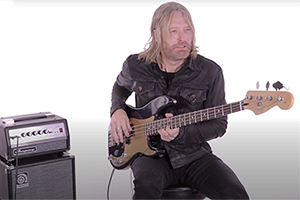
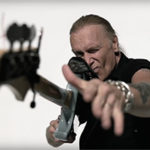
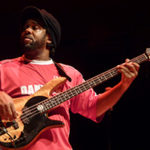
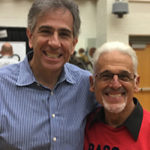
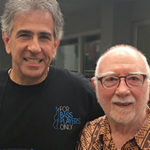
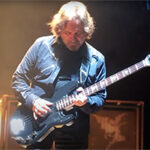
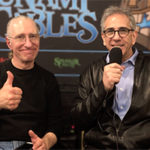
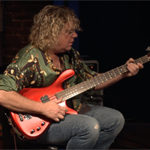
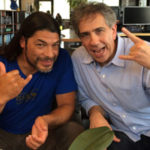
Chris mentioned that he studied with Mike Wicks in upstate NY. Both Mike and I played with the Utica Symphony (as well as did some sub dates for the Albany Symphony) when I lived in upstate NY in the early 2000’s. I haven’t kept in touch with him and had no idea that he had passed away. Mike was a great player and the consummate section mate. Very sad to hear of his passing.